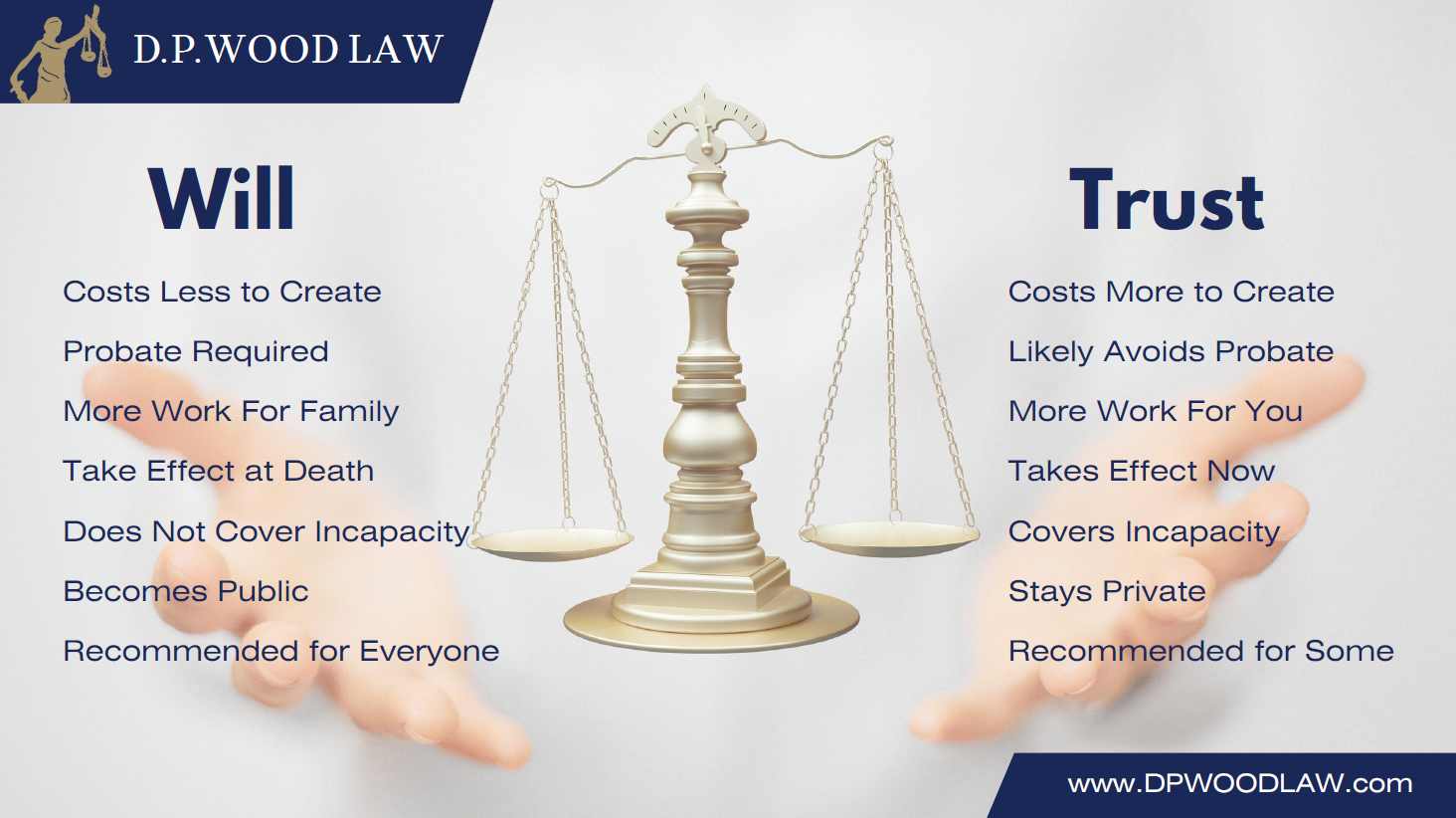Will (v) Trust
Wills and trusts are both essential estate planning tools, but they serve different purposes and operate in distinct ways. A will is a legal document that comes into effect after a person’s death, outlining how they wish their assets to be distributed among beneficiaries. It also allows the testator (the person making the will) to name guardians for minor children and an executor to manage the estate. Wills must go through probate, a court-supervised process that validates the will, settles debts, and oversees asset distribution. This process can be time-consuming and public.

Understanding Trusts
A trust, on the other hand, is a legal arrangement that can take effect during the grantor’s lifetime. It involves transferring assets into the trust’s ownership, to be managed by a trustee for the benefit of designated beneficiaries. Trusts offer more flexibility and control over asset distribution, potentially avoiding probate for assets held within the trust. This can result in a faster, more private transfer of assets. Trusts can also provide tax benefits and protect assets from creditors in some cases. While there are various types of trusts (such as revocable living trusts or irrevocable trusts), they generally offer more complex estate planning options than wills, allowing for customized asset management and distribution strategies.
What are the different types of trusts?
- Revocable Living Trusts (“RLT”)
- Irrevocable trusts – Primarily for Medicaid or Tax Planning
- Tax Planning…
How do Trusts Work?
- Creation – Design Meeting with an attorney; attorney drafts it; Review & Signing
- Funding – Transferring all assets into the Trust during your lifetime
- Distribution – during your life & at death, according to your rules
Trusts can do everything a Will can, PLUS:
- More Detailed Rules for Distributions
- Provisions for Your Incapacity
- Can Avoid Probate if Funded Correctly
- Remarriage Provisions
Estate Planning Documents
Durable Power of Attorney
Durable Power of Attorney or (“Financial Power of Attorney”) is a document that appoints someone you trust (your agent) to handle your financial matters if you become incapacitated.
Healthcare Power of Attorney
Healthcare Power of Attorney (also known as a Medical Power of Attorney or Healthcare Proxy) is a document that designates someone to make medical decisions on your behalf if you’re unable to do so.
Advanced Directive to Physician
Advanced Directive to Physician (also known as a “Living Will”) is a document that outlines your preferences for end-of-life care, such as whether you want life-sustaining treatment.
HIPAA Release
HIPAA Release is a document that authorizes hospitals and other medical professionals to communicate and share your medical records with the people you designate. The HIPAA Release is effective for up to two years after your death, allowing those named to obtain your medical records for insurance, litigation, or other purposes.
Declaration of Guardian in the Event of Incapacity
Declaration of Guardian in the Event of Incapacity (also known as Declaration of Guardian) allows you to nominate who you would want as your guardian in the event one must be appointed for you. This document also allows you to disqualify anyone you would not want appointed, and the court is barred from appointing them.
Appointment of Agent for Disposition of Remains
Appointment of Agent for Disposition of Remains is a relatively new addition to estate planning, this document gives an agent of your choice the legal authority to tell a hospital and/or funeral home what to do with your remains. This avoids conflict when burial or cremation arrangements have not been made in advance, and there may be a dispute amongst family members on what arrangements to make.

